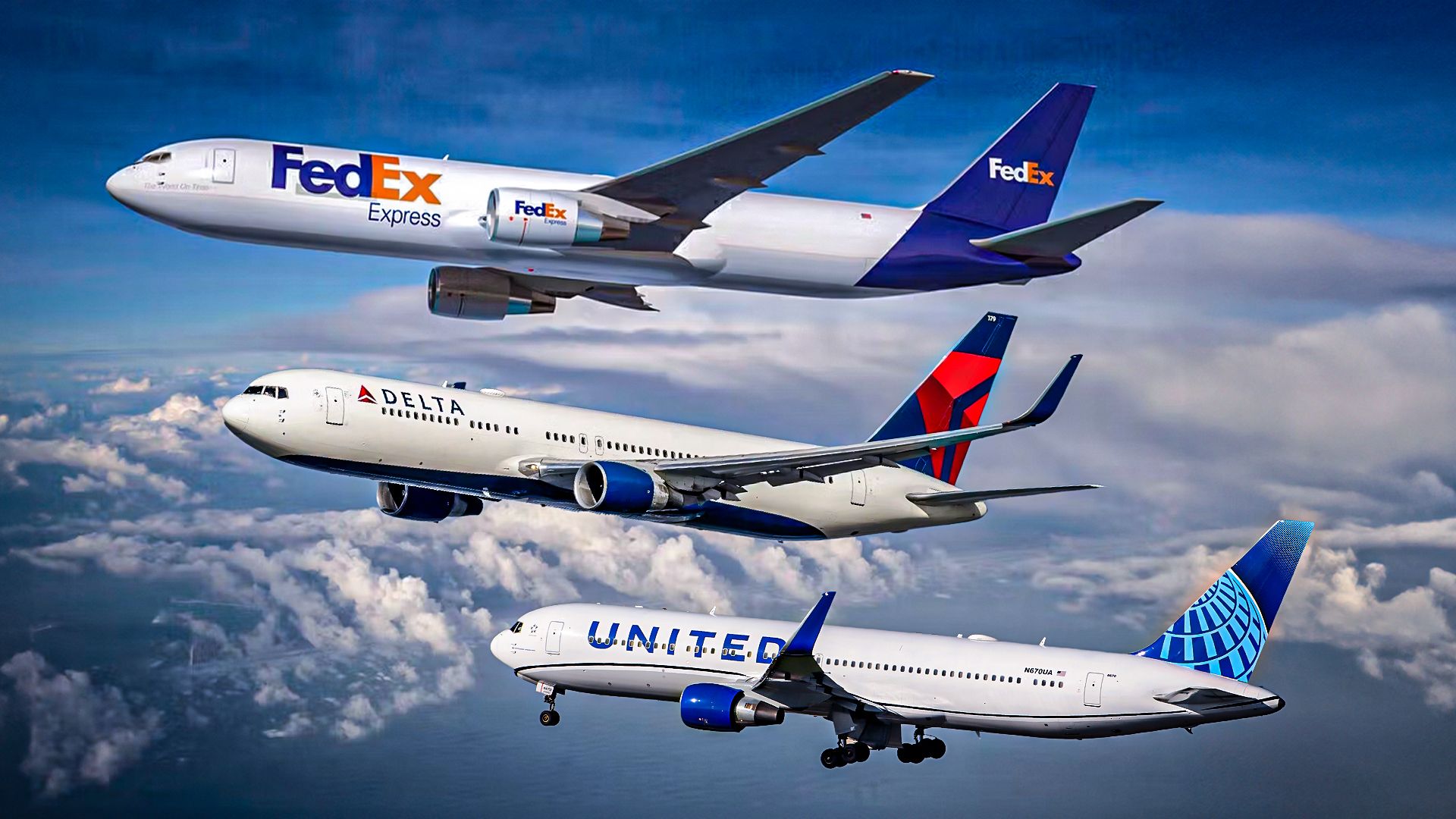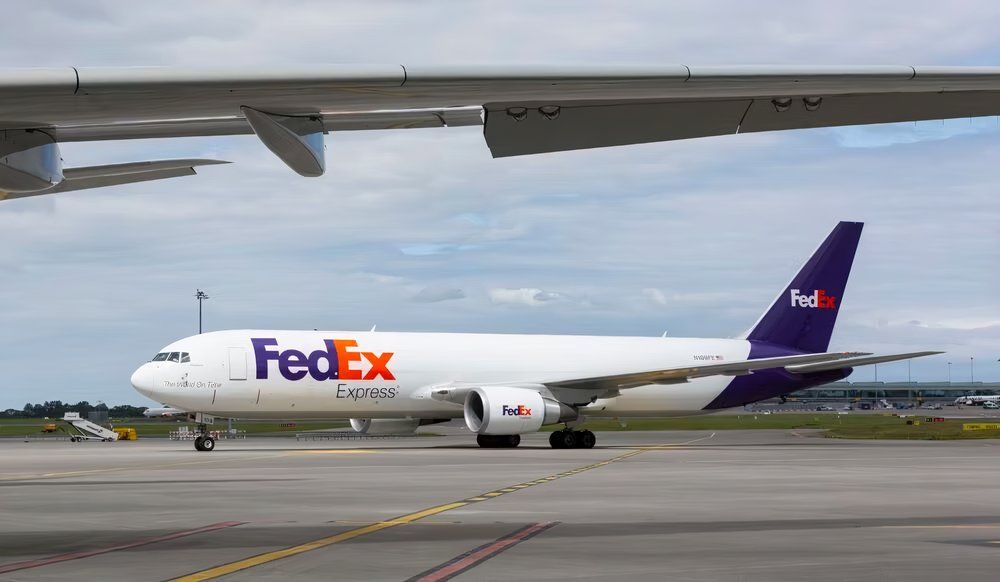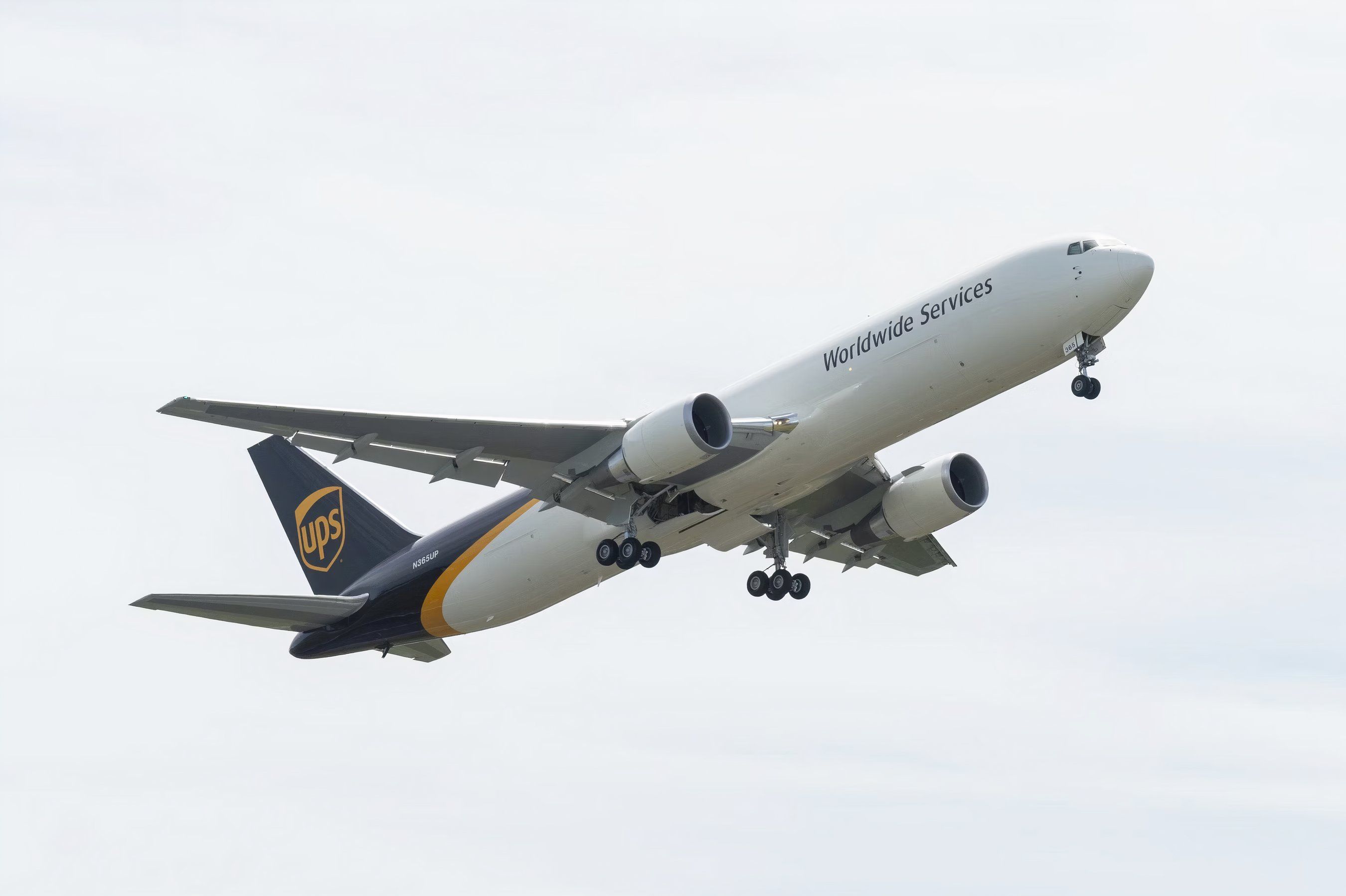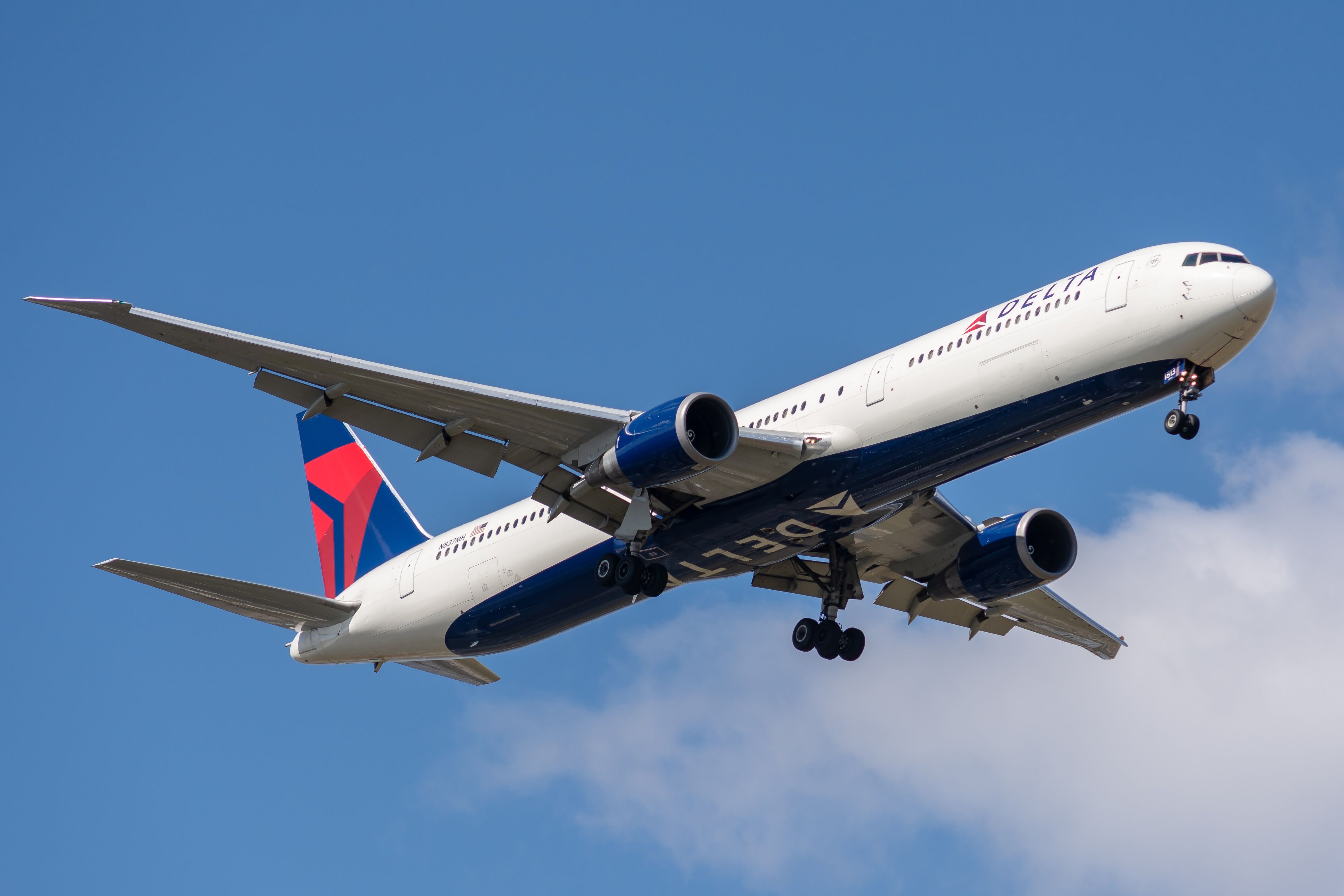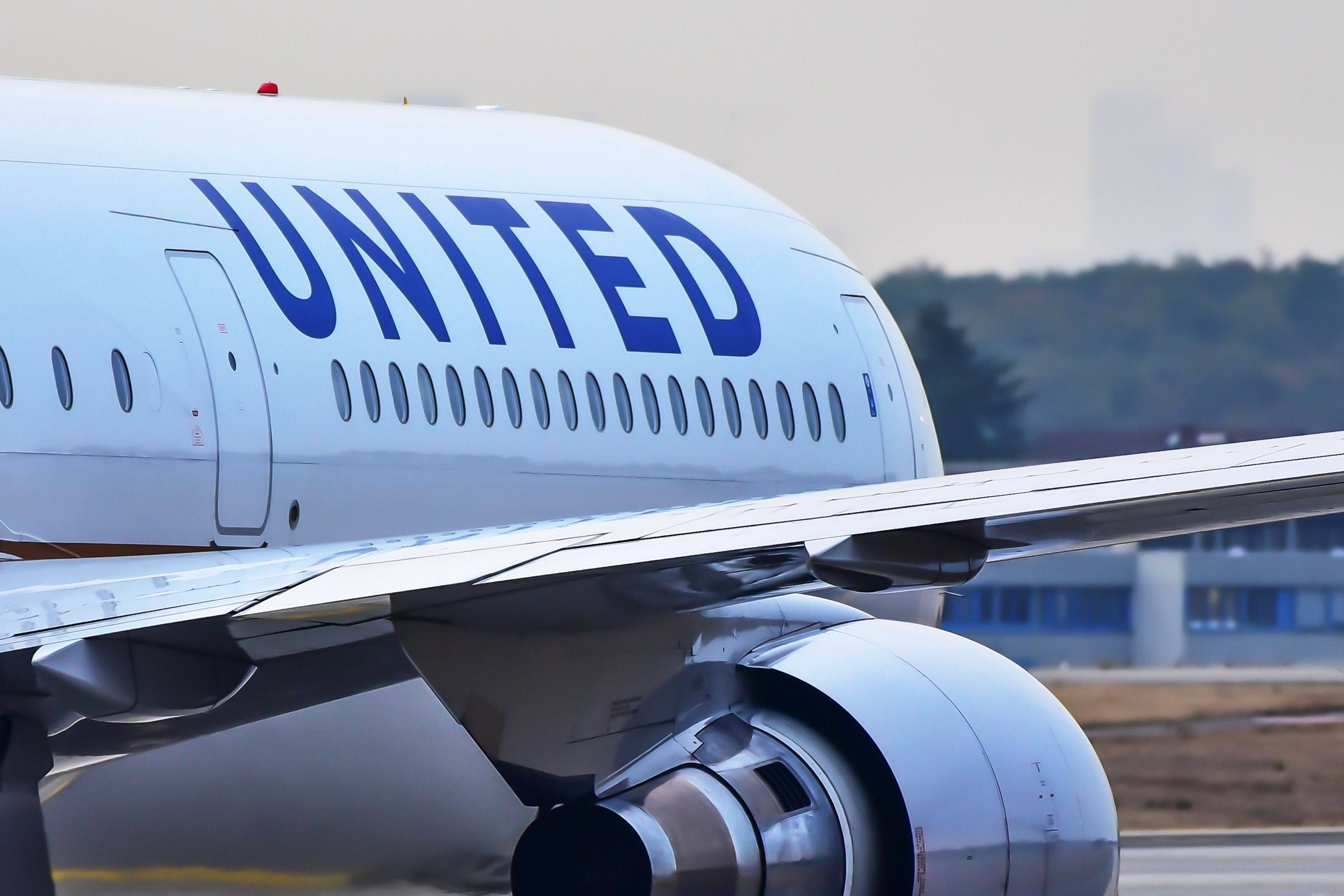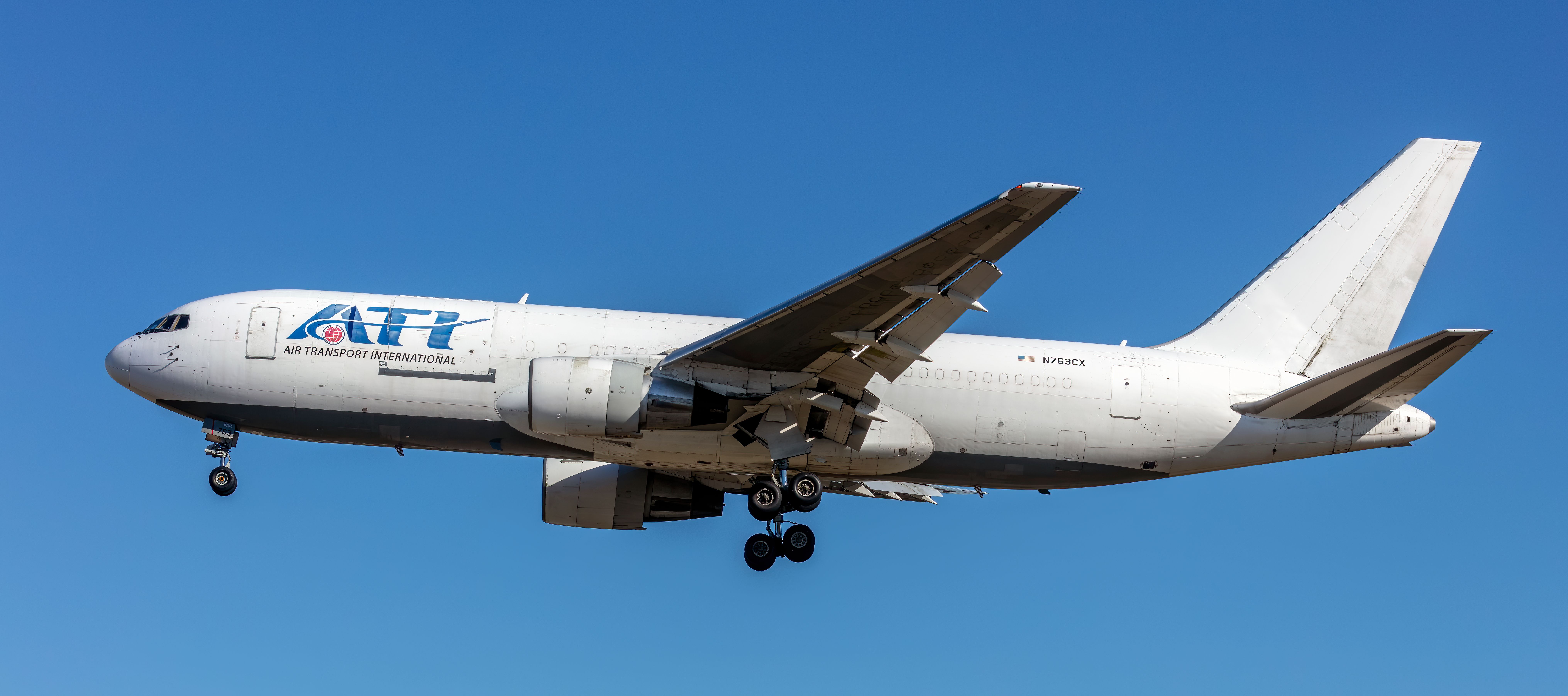Summary
- FedEx Express is the world’s largest 767 operator with a fleet of 137 aircraft, enhancing fuel efficiency.
- UPS Airlines has 89 767s, used for global cargo operations, filling a niche in their commercial lineup.
- Delta Air Lines operates 66 767s for passenger flights globally, with a focus on transatlantic routes.
The Boeing 767, a widebody airliner developed by the US-based manufacturer in the late 1970s and early 1980s, still maintains an important place in global commercial aviation today. The twinjet was among the first certified for long-haul overwater operations under recently-introduced Extended-Range Twin-Engine Operational Performance Standards, allowing carriers to use the aircraft for transatlantic flights.
Nonetheless, the plane still effectively serves commercial operators on domestic services, offering increased capacity on trunk routes between major airline hubs. The aircraft is also an incredibly capable freighter and has long been a favorite of cargo operators worldwide, which has also led to the creation of a secondhand market for converted 767s.
However, there are a few operators whose long-time love of the Boeing 767 rises above all others. In this article, we will look deeper at the five largest commercial operators of the popular twinjet, including both passenger and cargo airlines.
1
FedEx Express
Number of 767 aircraft: 137
|
Boeing 767 variant: |
Number of aircraft in service: |
|---|---|
|
Boeing 767-300F |
137 |
American cargo operator FedEx Express is the world’s largest operator of the Boeing 767 and maintains one of the largest global cargo fleets. According to FlightGlobal, the airline has been loyal to the aircraft type for some years, first placing an order for 27 767-300F jets in 2011.
Photo: FedEx
The jets were intended to replace the airline’s aging McDonnell Douglas MD-11 and Airbus A300-600RF freighters, for which the new 767s offered increased fuel efficiency. The airline continues to expand its 767-300F fleet, with ch-aviation reporting that the carrier maintains outstanding orders for an additional 15 aircraft.
The 767-300F offers a unique mid-level of capacity for FedEx’s mainline fleet, slotting nicely between the capabilities of the Boeing 757-200SF and the Boeing 777F. The carrier also operates a number of smaller cargo aircraft through its contracted FedEx feeder fleet.
2
UPS Airlines
Number of 767 aircraft: 89
|
Boeing 767 variant: |
Number of aircraft in service: |
|---|---|
|
Boeing 767-300F |
80 |
|
Boeing 767-300BCF |
5 |
|
Boeing 767-300BDSF |
4 |
Another one of the world’s largest cargo airlines, UPS, has long relied on the Boeing 767-300 to serve destinations throughout its extensive network. The carrier has also supported numerous conversion initiatives throughout the years, with ch-aviation listing nine current converted freighters in the fleet, with an additional 767-300ER awaiting modification.
Photo: Boeing
Much like FedEx, the aircraft fills a nice niche within the carrier’s commercial lineup, with a freight capacity that slots between the capacities of the Boeing 757-200PF and the Boeing 747-8F. According to Boeing, the airline still maintains a healthy backlog for the jet, with an additional eight 767-300Fs ordered in 2022, which built upon a preexisting 19 that had been ordered back in 2021.
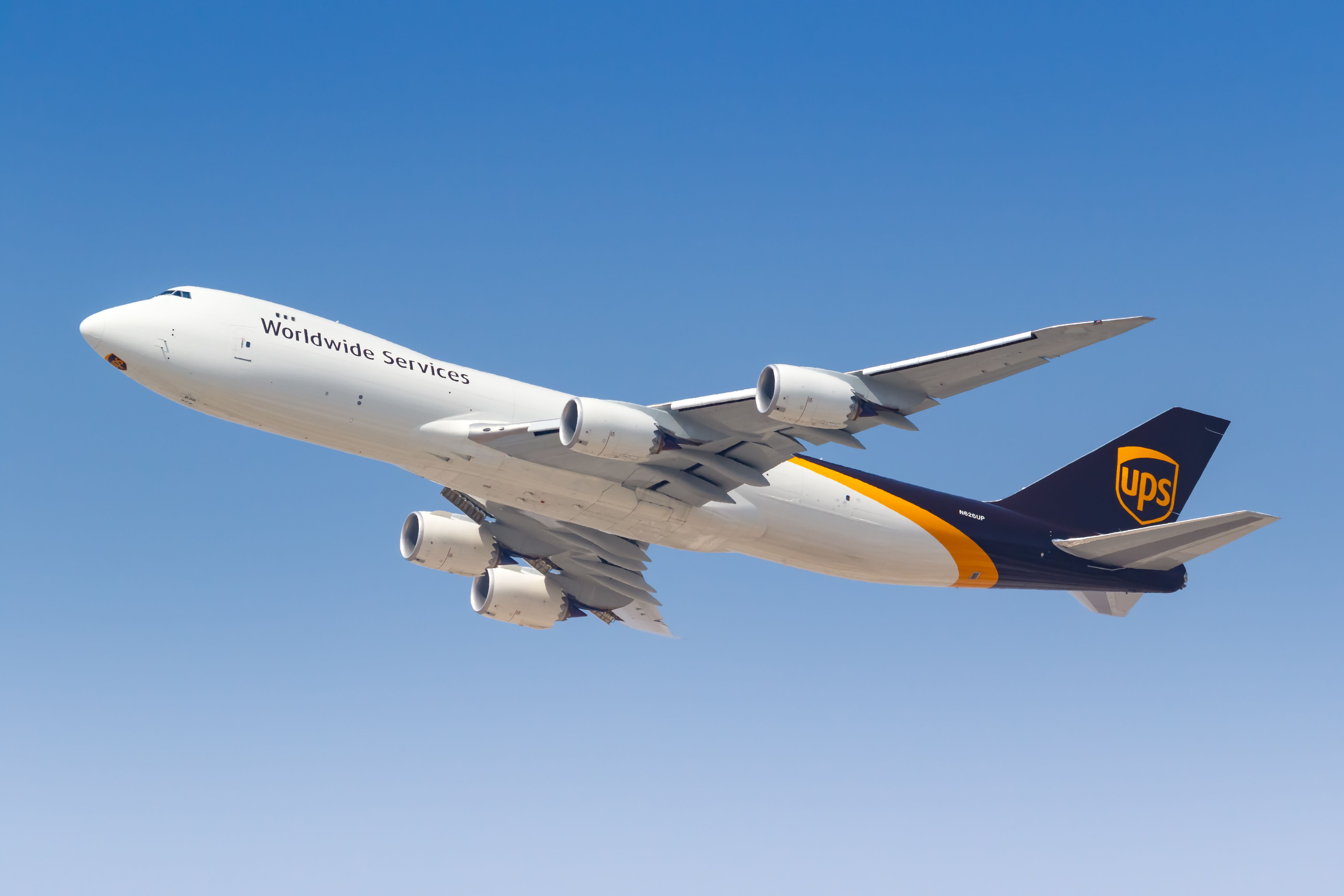
Related
UPS Acquires 2 Former Qatar Airways Cargo Boeing 747-8Fs
The two aircraft were the final 747-8Fs in Qatar’s fleet.
3
Delta Air Lines
Number of aircraft in service: 66
|
Boeing 767 variant: |
Number of aircraft in service: |
|---|---|
|
Boeing 767-300ER |
45 |
|
Boeing 767-400ER |
21 |
The largest passenger operator of the Boeing 767 is Atlanta-based Delta Air Lines, which also maintains the largest fleet of Boeing 767-300ER aircraft. According to ch-aviation, almost all of these aircraft are in active service, with a few currently grounded for maintenance and repairs.
Photo: GB-Photographie | Shutterstock
The airline uses these aircraft to serve destinations across its global network, capitalizing on the plane’s range and ETOPS certification to serve many transatlantic destinations. The carrier configures its 767 jets with between 211 and 238 seats, depending on the specific aircraft, and features a mix of Delta One (business class), premium economy, and economy class seating.
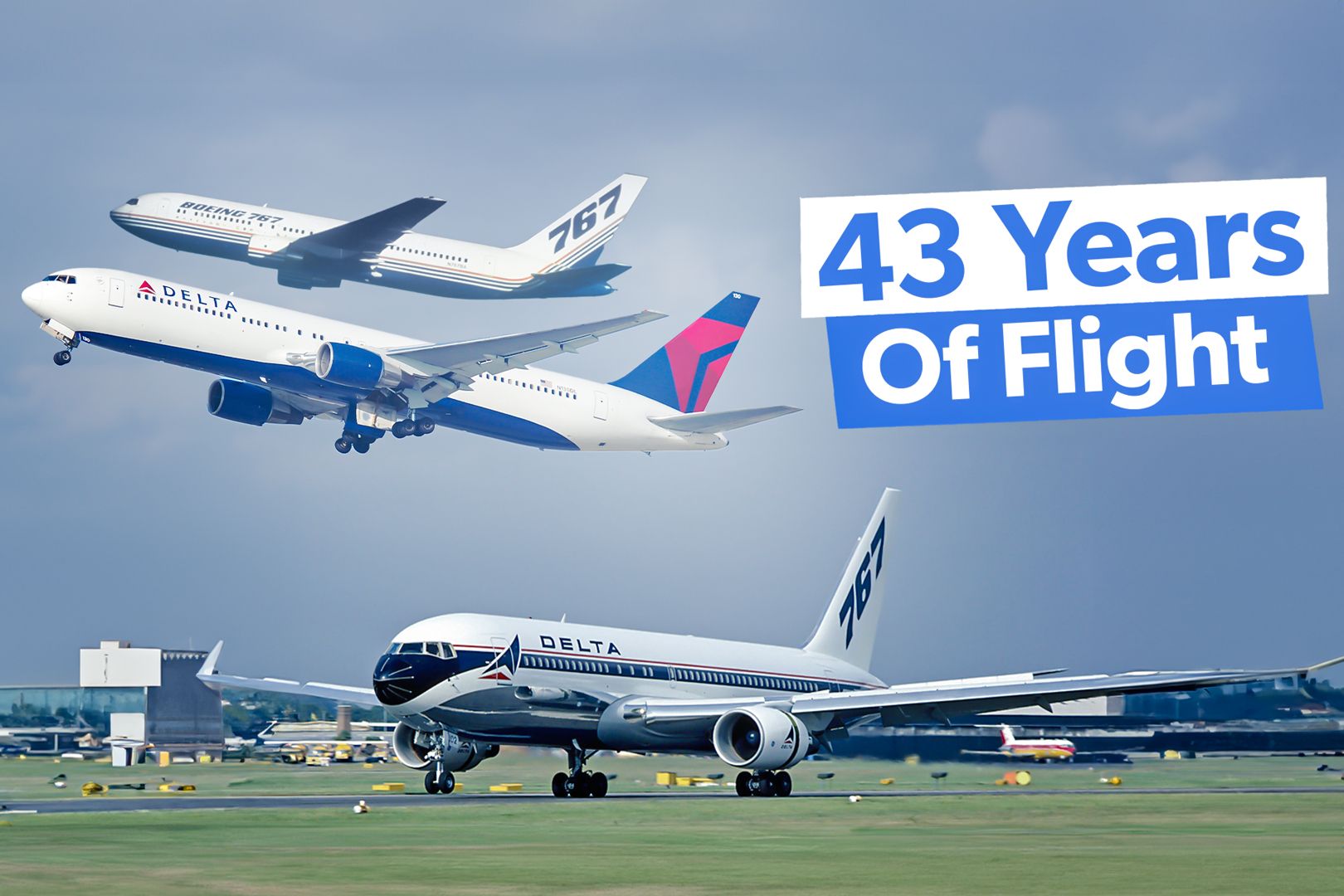
Related
Still Going Strong: 5 Fast Facts About The Boeing 767
The widebody is no longer in its heyday, but that doesn’t mean it’s down for the count.
4
United Airlines
Number of 767 aircraft: 53
|
Boeing 767 variant: |
Number of aircraft in service: |
|---|---|
|
Boeing 767-300ER |
37 |
|
Boeing 767-400ER |
16 |
The story of the Boeing 767 began on 14 July 1978, when the plane was launched with an order for 30 Boeing 767-200s from United Airlines. Just a few short years later, the jet would enter service with United on 8 September 1982, on a high-capacity route between the airline’s hubs at Denver’s Stapleton Airport (DEN) and Chicago-O’Hare International Airport (ORD).
Photo: Vytautas Kielaitis | Shutterstock
Before the advent of ETOPS regulations, the carrier primarily used the Boeing 767 on domestic routes, with a special emphasis on transcontinental services. Today, however, the aircraft is a workhorse of United’s long-haul international fleet, including several jets inherited from the airline’s merger with Continental Airlines.
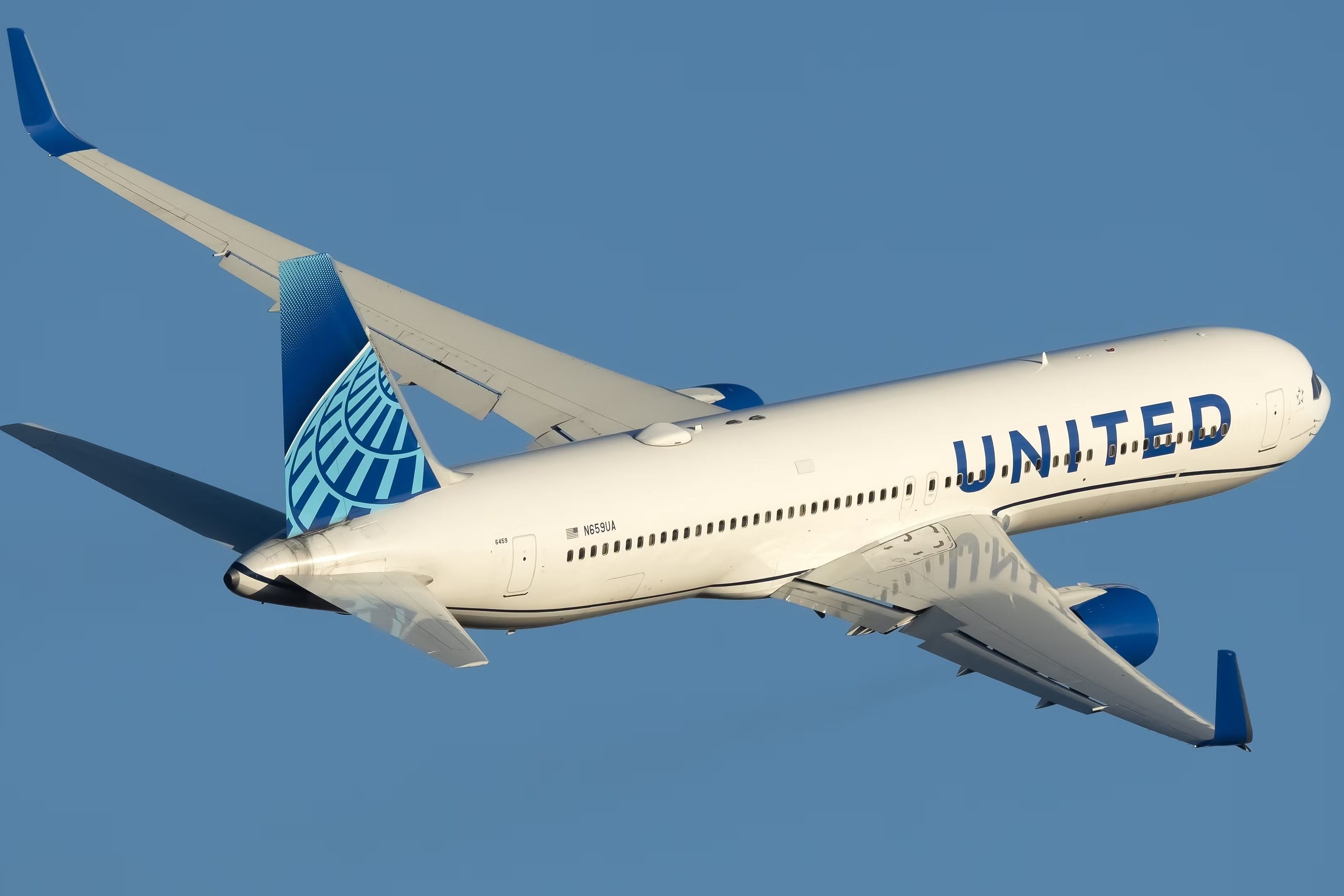
Related
United Airlines Repairs 33-Year-Old Boeing 767-300ER That Suffered A Wrinkled Fuselage
The aircraft returned to service last month.
Currently, the airline operates its 767-300ERs and 767-400ERs with between 167 and 231 seats, split between Polaris business class, United’s premium economy product, and standard economy seats. All the carrier’s 767s are set to be removed from service by 2030.
5
Air Transport International (ATI)
Number of 767 aircraft: 47
|
Boeing 767 variant: |
Number of aircraft in service: |
|---|---|
|
Boeing 767-200BDSF |
1 |
|
Boeing 767-200SF |
4 |
|
Boeing 767-300BCF |
3 |
|
Boeing 767-300BDSF |
39 |
Ohio-based cargo charter airline ATI is the last carrier on our list. It has a fleet of 767s that are leased to other carriers. Over 30 of the airline’s 767s are contracted out to virtual cargo carrier Amazon Air, alongside other operators including Aloha Air Cargo.
According to ch-aviation, the airline’s singular 767-200BDSF is currently operated on behalf of the United States Air Force (USAF). Much like UPS, the airline has added a number of converted freighters to its fleet over time, capitalizing on the financial opportunities aircraft conversions provide.

